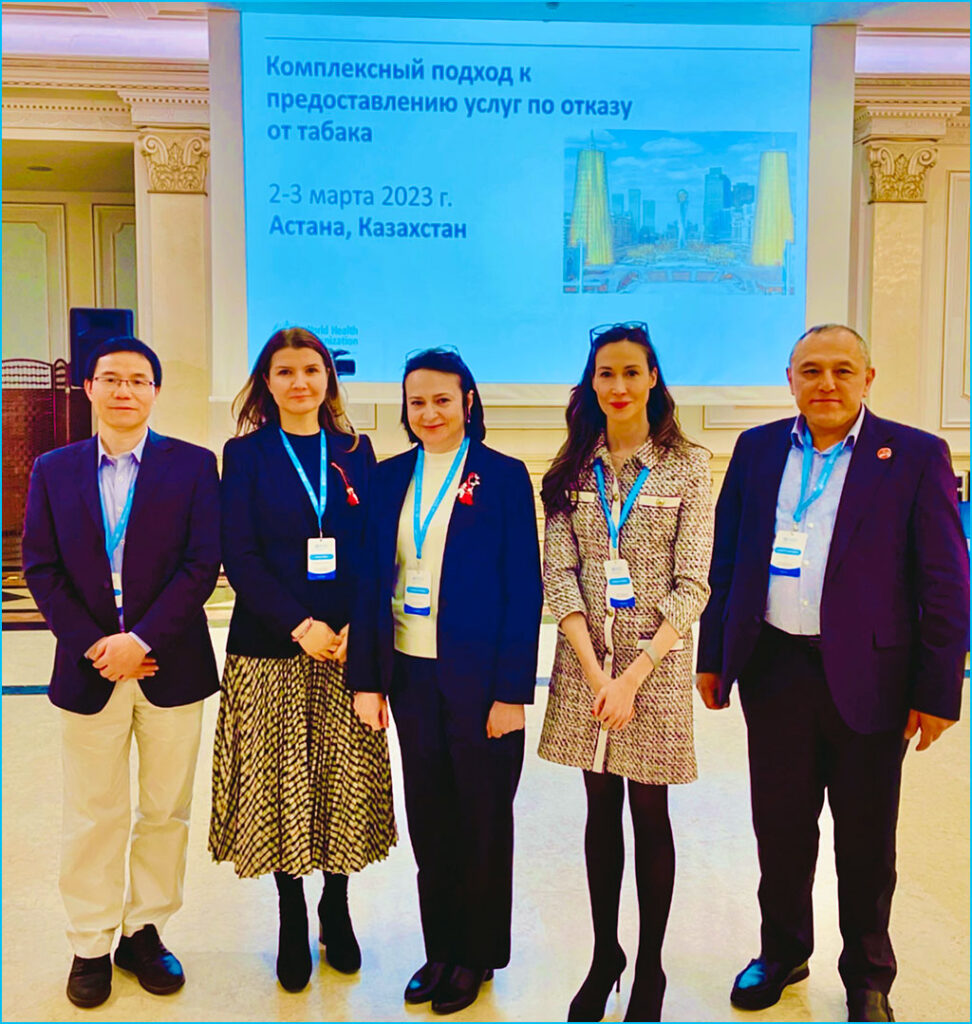Sharing the Catalan smoking cessation services system with Centro Asian countries
Dr. Cristina Martinez, deputy head of the Tobacco Control Unit (UCT) has participated in a training course for managers from 6 countries of the Central and Eastern European Region of the WHO to develop national smoking cessation programs.
Tobacco is the leading cause of preventable death and malaria in the WHO European Region and the countries of the Central and Eastern European Region have smoking prevalence rates of over 30%, mainly among households. Therefore, offering help to quit smoking is a priority for the health systems of these countries.
This is why the WHO European Office organized a training session in Astana (Kazakhstan) on March 2 and 3. During the training, several experts reviewed the available evidence on smoking cessation and measures to increase the capacity to offer smoking cessation support at the various levels of care, from primary and community care to hospital care.
Dr. Cristina Martinez presented the current model of health services in Catalonia and advised attendees on the development of policies, programs, and training to enable the implementation and sustainability of this health service. This activity is part of the tasks we carry out as a WHO Collaborating Center for Tobacco Control.
The experience of UCT members in the innovation of smoking cessation programs in hospitals, in the development of training and organizational projects in health centers, as coordinator of the Xarxa Catalana d’Hospitals sense Fum, has been key for the WHO to engage with its members as experts in various activities.






No Comment